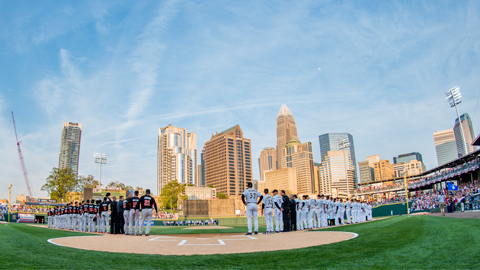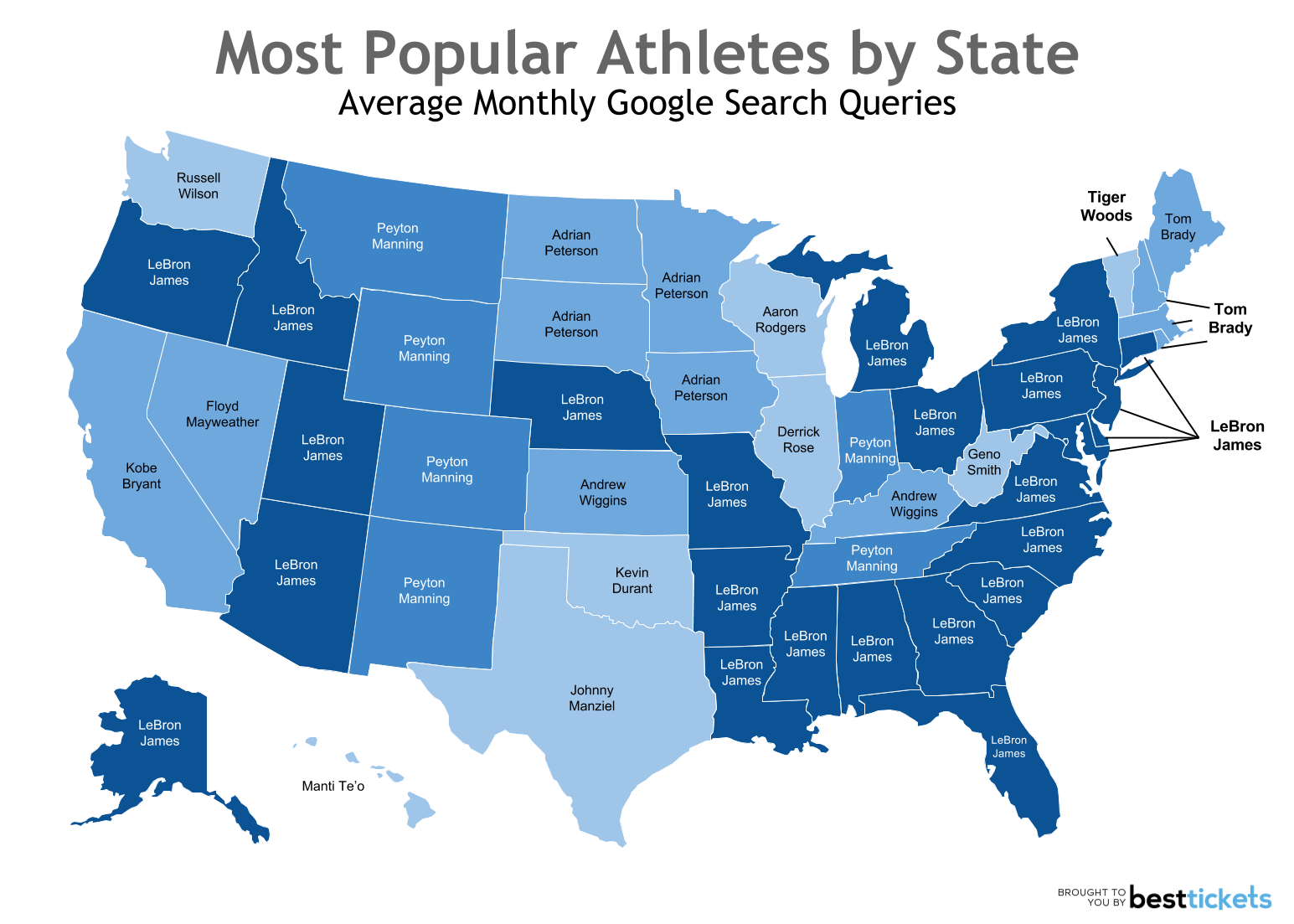Network TV, National Advertising, Breakfast Food Boost UConn
/UConn is making a splash these days in some unfamiliar places. Think iconic stadium, all the news that’s fit to print, and cereal– all of which have headlined the state’s flagship university in recent days. This past Saturday, the Huskies football team played Army at Yankee Stadium – the University’s first appearance at the ballpark in the Bronx. While UConn came up short on the scoreboard, the game was competitive and offered the school visibility in the New York metropolitan area and on CBS Sports Network, which televised the game.
This past Saturday, the Huskies football team played Army at Yankee Stadium – the University’s first appearance at the ballpark in the Bronx. While UConn came up short on the scoreboard, the game was competitive and offered the school visibility in the New York metropolitan area and on CBS Sports Network, which televised the game. 
Fans who happened to be reading the print edition of The New York Times on Friday may be been surprised to see a full-page ad promoting the university. The ad touted the university’s “unprecedented moves to unleash the solutions of tomorrow,” specifically highlighting a $3.6 billion investment in additive manufacturing, gnomic medicine and cybersecurity, the hiring of 300 faculty in fields including cognitive science human rights and intellectual inquiry, and recruiting 6,500 additional students to “lead their generation in addressing the most important challenges of our time.”
The ad was a one-time placement strategically timed to several significant events happening in New York City, including the Army-UConn game, an alumni gathering, and a meeting of the UConn Foundation board. UConn has a very active and robust alumni network in New York City and the region, officials noted.
The ad was purchased at a negotiated rate and ran not only in New York City, but nationwide in The Times. It was paid for with funds from the university’s marketing budget (approximately $43,000) and private dollars (approximately $10,000), specifically designated by donors to elevate the University through advertising. The UConn tagline, “Innovation unleashed,” was included in the ad, which featured text reading “Dear UConn, Thank you. Sincerely, The Future.” Total average print circulation for The New York Times for Monday-Friday was 680,905, as of March 2014.
For those who read their morning paper with a bowl of cereal – there’s more UConn to come.
Just arriving on the market is a new, limited edition Husky Heroes cereal. “The one and only cereal to honor both the UConn Women’s and Men’s National Championship basketball teams,” according to a newly launched website, is a honey nut toasted oat cereal and comes in a 14 oz. box. Basketball coaches Geno Auriemma and Kevin Ollie are each featured on the commemorative cereal box, which is sold in a two-pack. 
Marketed by Pittsburgh-based PLB Marketing, described as the “premier source for athlete-endorsed, quality food products,” there is a limited edition of 25,000 boxes being produced. The company also is currently promoting Miggy’s Salsa, with a likeness of Detroit Tigers star Miguel Cabrera, Fastball Bars, a chewy chocolate chip granola bar featuring his teammate Justin Verlander, and Gronk Flakes, featuring New England Patriots’ tight end Rob Gronkowski.
The Husky Heroes cereal is available on-line at www.huskyhereoscereal.com, with delivery anticipated later this month. The price is $14.97 for a two-box set, plus UPS shipping charge of $9.95, for a total of $24.92. The cereal is officially licensed by UConn through the university’s licensing agency, the Collegiate Licensing Company. The university receives a standard 12 percent royalty on sales of all licensed products bearing UConn trademarks.
In addition to web purchases, the cereal will be distributed locally in the coming weeks to some Connecticut retail locations by Bozzuto’s (retailers to be announced). It will also be sold at the UConn Coop. For those inclined to stock up early, bulk orders of 500 boxes are eligible for special pricing directly from PLB. Advance sales are just underway, and as of Monday afternoon there were 24,848 boxes remaining.



 The breakdown showed Patriots dominance throughout New England and most of Connecticut – with the exception of Fairfield and New Haven counties, which remain Giants country.
The breakdown showed Patriots dominance throughout New England and most of Connecticut – with the exception of Fairfield and New Haven counties, which remain Giants country.
 That’s just not reflected in the NFL map. The Cowboys come closest, but they’re not “
That’s just not reflected in the NFL map. The Cowboys come closest, but they’re not “

 asier to walk and bike by implementing "complete streets" in cities and towns across Connecticut. Complete streets make it easier and safer for people to get around on foot or by bike, in order to become more physically active.
asier to walk and bike by implementing "complete streets" in cities and towns across Connecticut. Complete streets make it easier and safer for people to get around on foot or by bike, in order to become more physically active. ut the
ut the 


 In addition, it calls for creation of a consent form for parents of student athletes to sign on the warning signs, symptoms and treatment of SCA and relevant school policies. Similar legislation has already been adopted in Pennsylvania, several other states are also considering SCA bills, according to the SCAF. The provisions of the new law take effect a year from now, with the school year that begins in the fall of 2015.
In addition, it calls for creation of a consent form for parents of student athletes to sign on the warning signs, symptoms and treatment of SCA and relevant school policies. Similar legislation has already been adopted in Pennsylvania, several other states are also considering SCA bills, according to the SCAF. The provisions of the new law take effect a year from now, with the school year that begins in the fall of 2015.
 names that are of concern varies. Some consider “Indians” inappropriate, yet the Cleveland Indians of Major League Baseball (MLB) have received virtually none of the criticism that has been leveled at the NFL’s Washington franchise. MLB’s Atlanta Braves fans have long been known for doing the “tomahawk chop” at teams’ games, and the NFL’s Kansas City Chiefs are not seen as being as offensive as the franchise name used in D.C.
names that are of concern varies. Some consider “Indians” inappropriate, yet the Cleveland Indians of Major League Baseball (MLB) have received virtually none of the criticism that has been leveled at the NFL’s Washington franchise. MLB’s Atlanta Braves fans have long been known for doing the “tomahawk chop” at teams’ games, and the NFL’s Kansas City Chiefs are not seen as being as offensive as the franchise name used in D.C.
 d to be no longer appropriate.’”
d to be no longer appropriate.’” Canton High School (Warriors), Conard (West Hartford) High School (Chieftans), Derby High School (Red Raiders),Enfield High School (Raiders), Farmington High School (Indians), Glastonbury High School (Tomahawks), Guilford High School (Indians), Hall (West Hartford) High School (Warriors), H.C. Wilcox Technical (Meriden) High School (Indians),Killingly High School (Redmen), Manchester Senior High School (Indians), Montville High School (Indians), Newington High School (Indians), Nonnewaug (Woodbury) High School (Chiefs), North Haven Senior High School (Indians), Northwest Catholic (West Hartford) High School (Indians), Norwich Regional Vocational Technical School (Warriors), RHAM Junior Senior High School (Sachems), Torrington High School (Red Raiders), Valley Regional (Deep River) High School (Warriors), Wamogo (Litchfield) Regional High School (Warriors), Watertown High School (Indians), Wilcox Technical (Meriden) High School (Indians), Wilton High School (Warriors), Windsor High School (Warriors), Windsor Locks High School (Raiders).
Canton High School (Warriors), Conard (West Hartford) High School (Chieftans), Derby High School (Red Raiders),Enfield High School (Raiders), Farmington High School (Indians), Glastonbury High School (Tomahawks), Guilford High School (Indians), Hall (West Hartford) High School (Warriors), H.C. Wilcox Technical (Meriden) High School (Indians),Killingly High School (Redmen), Manchester Senior High School (Indians), Montville High School (Indians), Newington High School (Indians), Nonnewaug (Woodbury) High School (Chiefs), North Haven Senior High School (Indians), Northwest Catholic (West Hartford) High School (Indians), Norwich Regional Vocational Technical School (Warriors), RHAM Junior Senior High School (Sachems), Torrington High School (Red Raiders), Valley Regional (Deep River) High School (Warriors), Wamogo (Litchfield) Regional High School (Warriors), Watertown High School (Indians), Wilcox Technical (Meriden) High School (Indians), Wilton High School (Warriors), Windsor High School (Warriors), Windsor Locks High School (Raiders). The first Knights game took place on April 11, 2014. (photo at left) The stadium features a two-level club with skyline views as well as a VIP, climate-controlled club with full service bar. In addition to corporate suites, there are 987 club seats at the new Charlotte stadium. Of those, 170 on the upper level sell for $41.50 per game, or nearly $3,000 per season. The remaining 817 club seats, at $21 per game, sell for about $1,500 annually. All of the club seats were sold out 10 months prior to the season opener, according to the Knights
The first Knights game took place on April 11, 2014. (photo at left) The stadium features a two-level club with skyline views as well as a VIP, climate-controlled club with full service bar. In addition to corporate suites, there are 987 club seats at the new Charlotte stadium. Of those, 170 on the upper level sell for $41.50 per game, or nearly $3,000 per season. The remaining 817 club seats, at $21 per game, sell for about $1,500 annually. All of the club seats were sold out 10 months prior to the season opener, according to the Knights 


 Prior to ING, United Technologies had been the title sponsor, following Aetna in the lead role in the marathon's early years. The Hartford Marathon has served as an increasingly impactful economic stimulus to Greater Hartford, helping to fill hotel rooms, bars, restaurants, and other tourist attractions throughout the region. NU will be the new sponsor through at least 2016, officials said.
Prior to ING, United Technologies had been the title sponsor, following Aetna in the lead role in the marathon's early years. The Hartford Marathon has served as an increasingly impactful economic stimulus to Greater Hartford, helping to fill hotel rooms, bars, restaurants, and other tourist attractions throughout the region. NU will be the new sponsor through at least 2016, officials said.
 athon Foundation, Inc. is a nonprofit organization founded in 1994 to create and manage fitness events that inspire people to be healthy and fit. The Hartford Marathon Foundation organizes nearly 42 annual athletic events, including the Hartford Marathon, and 25 training programs.
athon Foundation, Inc. is a nonprofit organization founded in 1994 to create and manage fitness events that inspire people to be healthy and fit. The Hartford Marathon Foundation organizes nearly 42 annual athletic events, including the Hartford Marathon, and 25 training programs. Fan interest in various Major League Baseball teams, based on Google searches, was recently released, highlighting the dominance of the New York Yankees and Boston Red Sox. They are searched for 3.8 and 3.7 times, respectively, more often than the league average, and more than 10 times as often as the least popular teams. The New York Mets placed sixth in the number of searches for the team worldwide.
Fan interest in various Major League Baseball teams, based on Google searches, was recently released, highlighting the dominance of the New York Yankees and Boston Red Sox. They are searched for 3.8 and 3.7 times, respectively, more often than the league average, and more than 10 times as often as the least popular teams. The New York Mets placed sixth in the number of searches for the team worldwide. book users “liked” each team in a ZIP code.
book users “liked” each team in a ZIP code.































